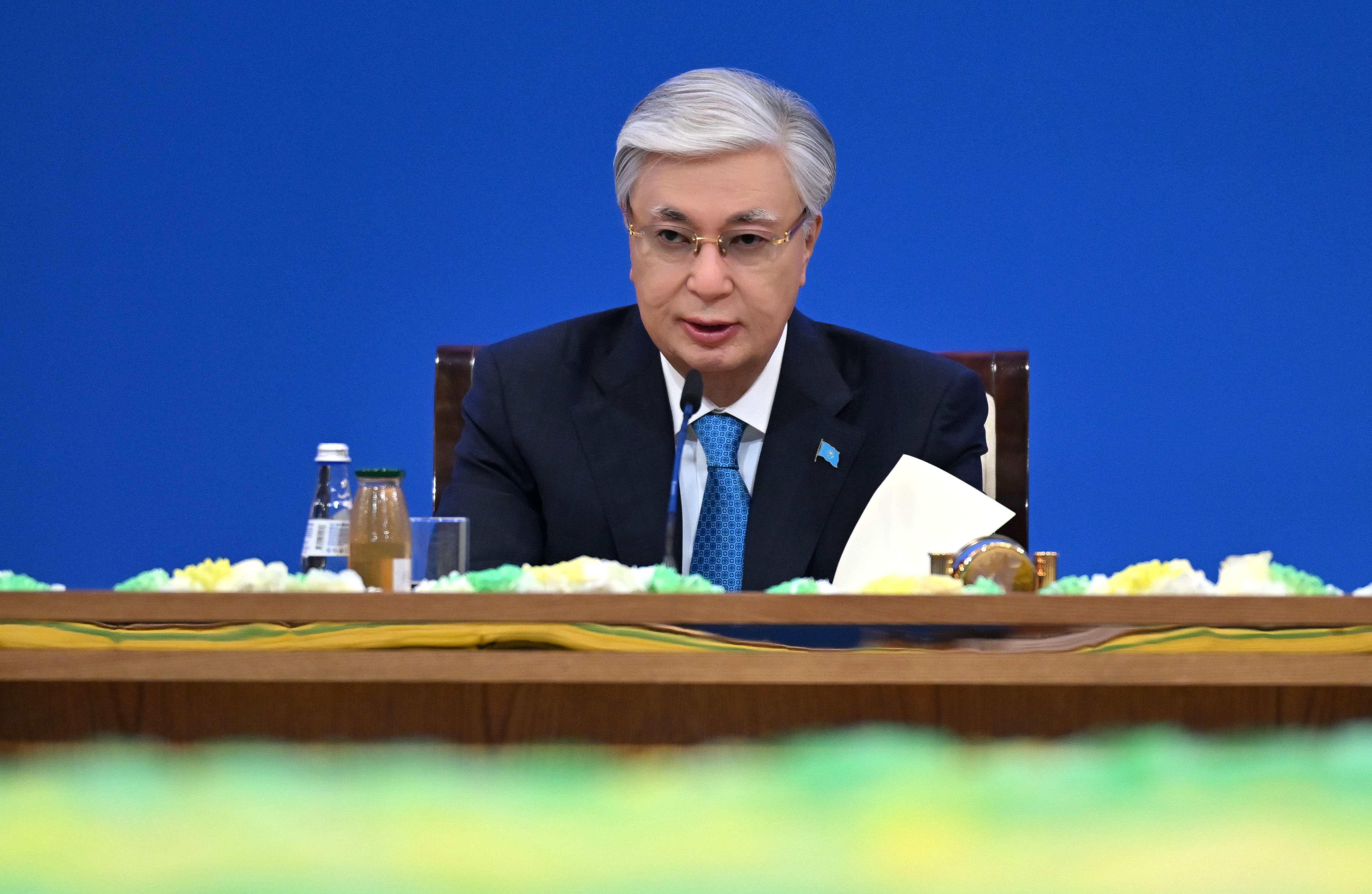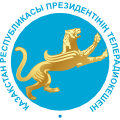
Opening the session, President Tokayev noted that the Council continues to serve as a solid platform for strategic engagement between the state and its international partners.
.jpg)
– For more than two decades, this forum has played a pivotal role in shaping Kazakhstan’s investor-oriented ecosystem. With the Council’s active engagement, we are determined to continue the implementation of comprehensive reforms aimed at improving the investment climate, enhancing transparency, and simplifying conditions for doing business in Kazakhstan, – said the President.
The Head of State noted that experts and analysts predict a slowdown in global GDP growth to approximately 2.9% in the coming years.
– We are now experiencing rising inflationary pressures, disruptions in supply chains, and heightened volatility in business confidence. These dynamics may further dampen the outlook for the global economy, underscoring the urgent need for constructive international dialogue. Amid these economic challenges, emerging economies such as Kazakhstan have withstood the external shocks. Over the first five months of 2025, Kazakhstan’s economy grew by 6%, which was driven by transport and logistics, construction, trade, mining and manufacturing sectors, – he noted.

According to Kassym-Jomart Tokayev, Kazakhstan’s strategic location, advanced human capital, and firm commitment to positive reforms create wide opportunities for both investors and the national economy. He spoke about the activities of the Investment Board, designed to promptly address all investor issues on a “here and now” basis. It was noted that the Board facilitated the resolution of issues for 137 investment projects worth $70 billion and initiated 140 legislative amendments aimed at addressing systemic investor challenges.
Additionally, a special “Prosecutorial Filter” mechanism has been introduced to prevent violations of investors' rights. Starting this year, no state body is eligible to conduct inspections, initiate administrative proceedings, file lawsuits, or impose restrictions on investors without prior approval from the General Prosecutor's Office.
– We have also launched a National Digital Investment Platform that consolidates state services for investors into a ‘Single Window’ system, where consultations and permits can be obtained on one platform. Moreover, we are to adopt a new Tax Code, which aims to enhance conditions for business activity by encouraging private investment in the economy. The new Code will provide targeted preferences for investors focused on developing local manufacturing while also supporting exporters of high value-added goods, – stressed President Tokayev.

In his speech, the Head of State outlined the most promising areas for cooperation with investors. In particular, he focused on the development of Kazakhstan's industrial potential.
– The mining industry remains the backbone of our manufacturing sector. Realizing the importance of mining and metallurgy on a global scale, Kazakhstan has designed a stable, investor friendly mining jurisdiction, backed by transparent and comprehensive legislation. The ongoing reforms in the mining sector have already attracted major players such as Rio Tinto, Fortescue, Ivanhoe, First Quantum and Tech Resources to engage in geological exploration in Kazakhstan. The new Tax Code will introduce royalty regime, encouraging downstream processing within the country. We believe that rich mineral endowment, advanced mining legislation and transparent tax regime will position Kazakhstan as a strategic hub in global critical minerals’ supply chain, – noted the President.


Kassym-Jomart Tokayev emphasized that Kazakhstan is taking decisive steps toward downstream processing and next-generation manufacturing. According to him, Kazakhstan successfully cooperates with Wabtec, Alstom, and Stadler in railway engineering. In particular, Alstom is building service centers in the country and plans to produce next-generation locomotives starting in 2028, while Wabtec is investing $200 million in rolling stock powered by alternative fuels. Stadler Rail has established a plant with an annual production capacity of 100 railcars.
President Tokayev highlighted the high potential of Kazakhstan's agro-industrial sector. As noted, the country ranks 6th globally in terms of farmland and is among the top ten largest grain exporters. The speech provided examples of successful operations by foreign investors such as PepsiCo, Fufeng Group, and Dalian Hesheng, which create stable demand for local products and introduce advanced technologies.


Special attention was given to strengthening Kazakhstan's status as a strategic transit hub through large-scale modernization of transport infrastructure.
– We are planning to refurbish 11 thousand kilometers of existing railways and lay another 5 thousand kilometers of new rail lines by 2029. This year, we will launch the 830-kilometer Dostyk-Moyynty railway line – two years ahead of schedule. The line will raise capacity on that critical section fivefold. At the same time, we are working to enhance several more priority corridors, including Darbaza-Maktaaral, Bakhty-Ayagoz, Moyynty-Kyzylzhar and Altynkol-Zhetygen railroads. These projects will increase the capacity and operational speed of Kazakhstan’s railway network. We continue to improve the quality and safety of our highway network. Last year we opened three major international highway corridors – Taldykorgan-Oskemen, Karaganda-Almaty, and Aktobe-Atyrau-Astrakhan – adding 1600 kilometers of new highways, which is twice the length delivered in 2023. This year, road construction and modernization works span over 13 thousand kilometers nationwide, – he said.
New international terminals were also opened at the airports in Almaty, Kyzylorda, and Shymkent, increasing their capacity sixfold.


Kassym-Jomart Tokayev noted that Kazakhstan ranks among the top 30 countries in terms of digitalization according to the UN. He stated that since 2018, the number of fintech companies has quadrupled, and over 4,000 participants, including crypto exchanges and payment services, have been registered at the AIFC. The President invited international partners to collaborate in developing digital and AI infrastructure.
– AIFC ranks 1st in Eastern Europe and Central Asia in the Global Financial Centres Index and leads the region in green and digital finance. Over 89% of all transactions in Kazakhstan are now cashless, and mobile banking usage has increased by more than 460% in the last four years. In addition, we are planning to create a pioneering pilot zone called CryptoCity where cryptocurrencies might be used for purchasing goods, services, and beyond. We are also placing strategic importance on the development of artificial intelligence (AI), recognizing it as a key driver of future growth, competitiveness, and digital sovereignty, – noted Kassym-Jomart Tokayev.
In conclusion, the Head of State expressed confidence that long-term mutually beneficial cooperation between the state and the private sector will play a key role in ensuring sustainable and inclusive economic growth.
During the event, speeches were delivered by EBRD President Odile Renaud-Basso, Minister of Industry and Construction Yersain Nagaspayev, Chairman of the Board of the Kazakhstan Foreign Investors’ Council Association Erlan Dosymbekov, ADB Vice-President Bhargav Dasgupta, VEON Group CEO Kaan Terzioğlu, CNPC Vice-President Daowei Zhang, and Alstom President for Africa, Middle East, and Central Asia regions Martin Vaujour.









